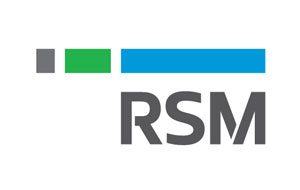
Developing and implementing effective public policy has become increasingly more difficult because of three reasons:
1. The obvious responses have been implemented – the most obvious policy responses that were readily achievable, did not require a lot of effort, and/or delivered substantial benefits, have largely been implemented; meaning that government must explore innovative policy responses to achieve further outcomes.
2. Increasing socio-economic complexity – a more sophisticated economy, with increasing integration and inter-connectedness of political, structural, economic and social systems means that design of effective policy responses must conceive and respond to this complexity.
3. Funding constraints – the current fiscal constraints means policy owners need to achieve outcomes in a more cost effective manner.
To achieve outcomes policy makers are beginning to adopt more avant-garde, innovative and sometimes untested policy responses (a high profile example being the plain-packaging of tobacco products), and to enact these responses through new service delivery models, including engagement with citizens through digital and social channels, and partnering outside of government. At their core, policy programmes affect systems: collections of interconnected and interrelated elements that move or work together (directly or indirectly) to achieve a common goal. Systems have their own dynamics, and modern policy makers must design policy by considering ‘the system as a whole’. With increased complexity comes an increased risk of designing ineffective or inefficient policy, and also of unintended consequences.
Programme evaluation has long been used as a tool for validating a policy programme’s performance, and given the challenges faced by today’s policy makers, it is more important than ever. However, the traditional approach to programme evaluation is ill-suited to the challenges of the contemporary policy environment because they often start too late and over-emphasize evaluation of programme inputs and outputs rather than focusing on the outcomes being achieved (or not).
To help reduce the risk inherent in contemporary policy responses, modern programme evaluation must use a systems approach implemented holistically across all phases of the policy programme.
RSM’s contemporary programme evaluation approach builds a thorough understanding of the programme as well as the system that surrounds it, to ensure the outcomes are robust, pragmatic, practical and ultimately sustainable.
By adopting a systems approach, it asks policy makers and systems participants to think more broadly by engaging evaluators with diverse expertise including portfolio experts, economists, actuaries, process engineers and psychologists and is applied throughout the entire programme lifecycle, taking a holistic view, and is applied across policy programme planning and delivery.

RSM has developed this approach based on many engagements undertaking complex programme evaluation in the areas of Social Services, Health, Education and Taxation. More information on this approach and other RSM services and offerings are available at www.rsm.com.au
Alternatively, please contact Luke Williamson on [email protected] or 02 6217 0300

